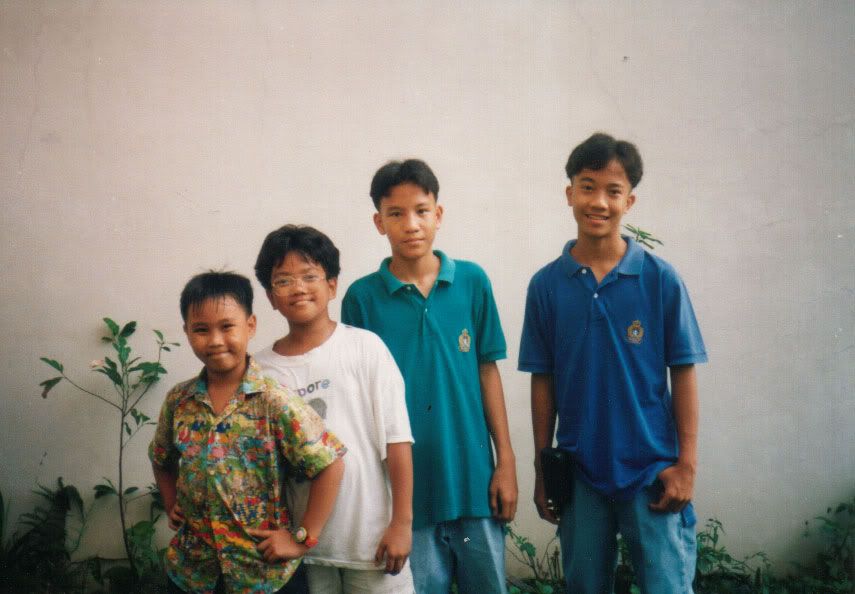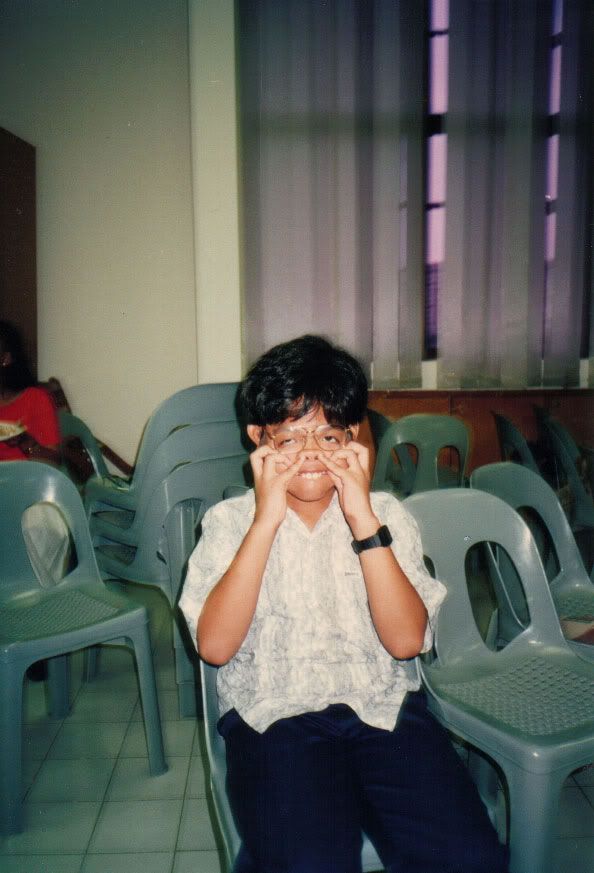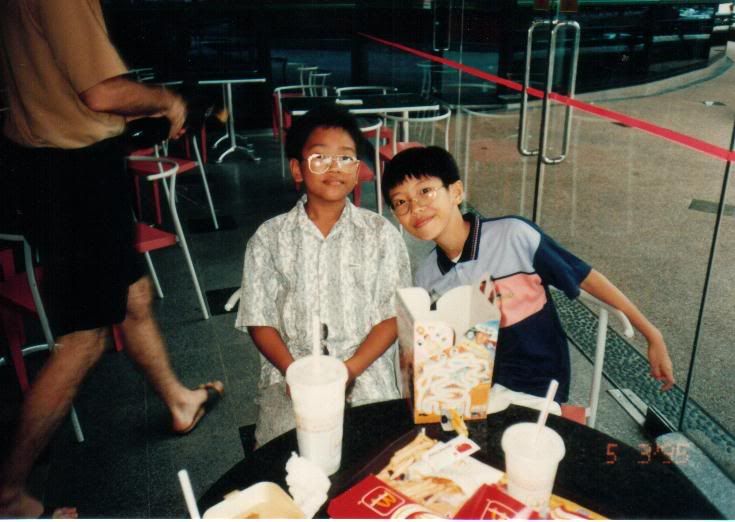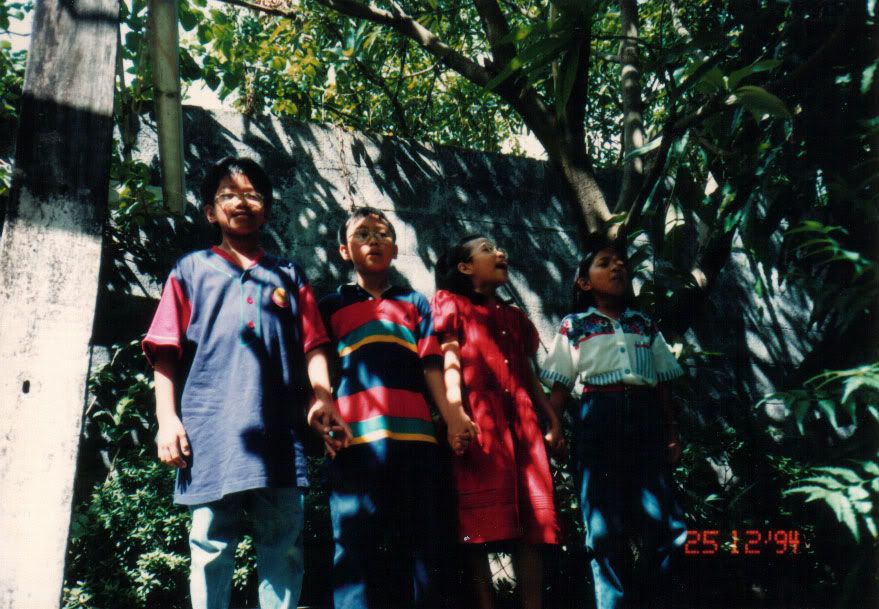For years (okay, maybe only a couple or more) I've bristled with indignation whenever I read a slashdot article about patents, copyrights and intellectual property and how they're stifling the growth of technology or how they're unfairly prosecuting people. I've read and accepted these articles and, because of the slant of the articles (slashdot is hardly an unbiased source of news), I've become opposed to the ideas of patents and copyrights without ever thinking too deeply about the why. Sure, I could see right away that the runaway enforcement of these things stop the progress of technology, but I never went deeper.
During my internet outage, I dug out my electronic copy of Free Culture, a book by Prof. Lawrence Lessigs's and decided to educate myself on this topic. Before reading this book, I've already listened to a talk by him online, about copyright and the free culture. It did clear up some questions on how copyright is bad and is really a great way to start people off on the issue of copyright. Admittedly, the talk had a techie slant to it (the talk was held during an open source convention), but Lessig is really a good speaker who knows how to get his points across well.
So far, I'm only halfway through Free Culture, but already I've gained a couple of insights, some not even related to the topic of the book itself.
My first thought, not totally relevant to copyrihgts but important enough, that blogs, nay, the internet is a way for regular Joes to challenge the power of Big Media. One of the powers that Big Media has is "mass-hypnotism". The ability to influence greatly the way people think. In enternainment, in news, the way Big Media portrays the world affects the way people percieve the world. The internet is a great way to turn that around. It allows individuals to make their views and opinions about the world known to a large audience.
"Power to the people". Some people fear that big media could eventually influence people so much that they can become a power unto themselves. But the internet changes that by letting people be heard, allowing views to come out that isn't simplified (TV assumes it's audience is stupid doesn't it?) or filtered. Granted, the power of media isn't always abused and good does come out of it, but the internet has a longer attention span, allowing thoughts to fully develop instead of dying a quick death because "it's old news".
My second and more relevant insight is that the real danger of intellectual property is the stranglehold Big Media will have on our culture, if the war for intellectual property goes the way they want it (hence the title, Free Culture).
In the earliest example cited in the book, London book publishers had wanted copyright to be forever. What this meant was that they got to decide who can publish the works of Shakespeare, thus they could artificially keep the prices of their books high, because they didn't have any competition. The parliment however, had seen the damage perpetual monopoly causes to learning and to culture and wisely set a time for copyright to expire, after which the work comes into public domain. This temporary monopoly gave people incentive to create works and afterwards, it benefited the public when it was set free.
Fast forward to the situation now. The length of copyright law has been extended so far that it almost becomes impossible for normal people to take part in shared culture legally. The creativity that people of our time have contributed, it is unlikely that we, as normal people, will ever be able to build upon.
Take for example, the Walt Disney corporation. The Disney empire was built upon the creativity of that generation. The early Disney cartoons, the initial successes of the company, were parodies of films from that era, barely months old. And the classic cartoons of Disney, Mulan, Snow White, Sleeping Beauty, the Lion King (ever heard of Kimba?). They took part of our shared culture, works in the public domain (and not even in the public domain. Look at the Lion King) and modified them, changed them, gave them that touch of "Disney-ism".
But while their whole empire was born of this "shared culture", Disney refuses the public the same rights. Take Mickey Mouse for example. His roots came from a movie not even in the public domain. However, when Mickey Mouse was to pass into the public domain, the lobbyists of the movie industry moved to get the terms of copyright extended. They succeeded and the Sonny "copyright should be forever and a day" Bono Copyright Term Extension Act came into being.
If Disney could benefit from our shared culture, why is it that normal people, cannot? Is there something that seperates us from them? (Well there is actually, deep pockets and the army of lawyers) Is the law there to serve the public or the corporations?
This extension of the copyright terms is a slippery slope. As one pamphleteer put it:
I see no Reason for granting a further Term now, which will not hold as well for granting it again and again, as often as the Old ones Expire; so that should this Bill pass, it will in Effect be establishing a perpetual Monopoly, a Thing deservedly odious in the Eye of the Law; it will be a great Cramp to Trade, a Discouragement to Learning, no Benefit to the Authors, but a general Tax on the Publick; and all this only to increase the private Gain of the Booksellers.
In fact, the lobbyists of the big media is pushing for copyright to be forever. They do have the right to a copyright, I will grant. But the copyright they have must not be solely for their benefit. Copyright must be balanced. It must not just benefit corporations, it must also ultimately for the benefit of the people and our shared culture. Patents must ultimately enhance shared knowledge, not just fatten up the bottom line.
The enforcement of patents must also not impede progreess. I just realized how topical this is. Right now, the big media conglomerates, the people out to protect their own private interests while harming the public interests are lobbying to make the Induce Act law. It's a bill that would hold technology companies liable for any product they make that encourages people to steal copyright materials
.
This is an artificial wall to technology. I may not be able to name a potential technology, as of now, that this law could make illegal, but I do believe that any impairment to technology that is artificial and is mandated by law but not agreed to by the norms of society is bad.
Already we have the Digital Millenium Copyright Act as a way to block reverse engineering of copyright protection technologies by law. It doesn't just stop progress of technology, it also infringes on free speech and gives the copyright holders too much power
If you're really interested in finding out more about how copyright can affect you and your freedom to create, I suggest listening to Professor Lessig's talk and downloading a copy of Free Culture. I've only read through half of it but I do feel it's a good way to empower yourself with knowledge of the issues surrounding copyright.
To end of my message, let me leave you with something from Mr. Lessig's talk. A quick summary on why we should fight for better copyrights.
<refrain>
-
Creativity and innovation always builds on the past.
-
The past always tries to control the creativity that builds upon it.
-
Free societies enable the future by limiting the past
-
Ours is less and less a free society.
</refrain>
Edit
This case is a good illustration of why we need saner copyright laws. In a sane world, or at least in a world where the copyright laws were written with the best interests of the public at heart, the JibJab fellows would have been able to use the song in their flash animation without any or hesitation, because by this time, the term of the copyright would have expired and the work would have passed into the public domain, for the betterment of culture, allowing anyone to "Rip, Mix and Burn" without having the lawyers get involved.
Now, artists are stuck in this incredibly restricted world of permissions. Artists are not able to utilize freely, without censorship from the copyright owner (that is if they are even allowed to use it. "Wanna use? Pay up!"), works that ought to be available to them. Instead, we're stuck about talking of Fair Use. And who decides fair use? If you're going to go up against one of the Big Media conglomerates, well, you may know it's fair use, but they sure as hell are going to make your life a legal hell, just to show you who's boss for not paying them for their monopoly.
Fuck fair use. PUBLIC DOMAIN!














